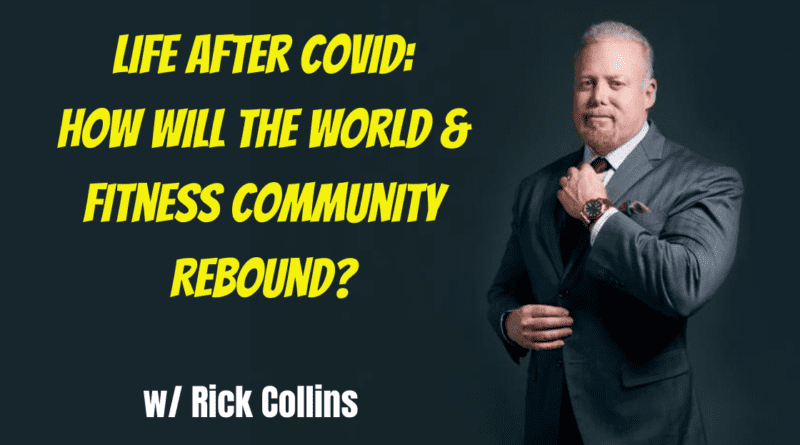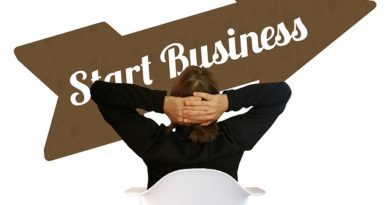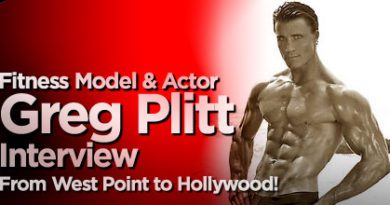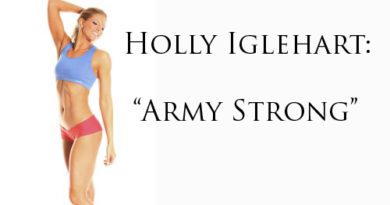Post-Pandemic Life w/ Rick Collins: Can We Recover?
While the US and the rest of the world is still battling the pandemic, we are seeing things open back up and restrictions starting to be lifted. Taking that into account, I wanted to chat with my good friend, Rick Collins, and pick his brain to see what he thinks the future holds. Can the fitness and supplement industry rebound (and business in general)? Will more people focus on their health and fitness or will they continue living an unhealthy lifestyle? That and more in our interview below!

Rick, you’re truly a man who needs no introduction in the fitness world, but for those who may not know who you are, can you give us a brief background on yourself and your career as a lawyer?
Rick Collins: Sure, Matt. You and I go way back, so thanks for reaching out to do a fresh interview. Most people know me as an attorney who concentrates on matters involving health and fitness. I started my legal career as a prosecutor and criminal defense lawyer – a trial lawyer. I teach trial skills regularly. But before that, I was a personal trainer and a competitive bodybuilder. So, my “skill set” straddles the two worlds.
Most of my clients today are people who need a lawyer’s help in the bodybuilding community or the dietary supplement industry. I’m a legal advisor to the IFBB Pro League and the International Society of Sports Nutrition. I write a column for Muscular Development magazine, have written a few books, and appeared in the documentary “Bigger, Stronger, Faster.”
I’ve done work for countless supplement companies, and I’ve probably defended more people in cases involving steroids, SARMs, or peptides than any lawyer on earth (check out www.steroidlaw.com for more). But my law firm handles a wide array of other legal matters. I have clients all across America. I love what I do.
2020 was clearly a year many of us would like to put behind us. Fitness enthusiasts worldwide struggled to find gyms that were open or even maintain their physiques through home workouts. How did you maintain your sanity during these challenging times and stay committed to your health and fitness in a state like New York, where there were some extremely severe restrictions in place?
Rick Collins: I’m lucky to be based not far from the East Coast Mecca, the Bev Francis Gym. I’ve been a member for over twenty years. But Bev’s was forced to close down for five months during New York’s gym lockdown, so I was relegated to training at home for a while with a set of adjustable dumbbells and a bench in my basement. Not ideal, but with enough volume and intensity, you can get a great workout with limited equipment.
There’s just no excuse to sit around and do nothing. I made the best of it and stayed sane, lol. But I was super glad to get back to Bev’s when it reopened last fall. It’s a great atmosphere for training.
As the research shows, those who are inactive, unhealthy, and have pre-existing medical conditions are the ones who were greatly affected. Even those who had low levels of vitamin D were more susceptible to the virus. Is the more significant issue that we’re faced with the lack of urgency for people to focus on improving their health?
Rick Collins: Well, first, I lost some people I cared about to this virus. I also have friends who got very, very sick but recovered. Not all were old and sick to begin with. So, this was no joke. But there’s no doubt that the prognosis for COVID patients is better for people in good health.
Taking supplemental vitamin D3 and other nutritional products to boost immunity makes sense. Staying healthy and fit can protect you and improve your chances of better outcomes if you are exposed to the virus. That means eating right, but it also means exercising.
Closing the gyms here in New York and in other places may have limited the potential for spreading the virus, but it also had a negative effect both physically and psychologically on thousands of individuals. We don’t hear much about that.

While we are told to “follow the science,” there’s so much research out there showing how vital health is to fight many diseases and viruses. Yet, you really heard nothing from “the experts” on what people should be doing in order to make the necessary improvements and help minimize their risk (from a health standpoint) of getting and fighting the virus.
Rick Collins: I agree! That was so disappointing. When the pandemic hit, the “experts” and mainstream media sources focused on masks and lockdowns. It seemed like the main interest was in ratcheting up the fear level to justify shutting things down.
There was far too little focus on taking active steps to improve your health. I heard very little if anything about eating right, working out, or taking supplements during the span of many months when it could have made a difference for people. Sadly, some people stopped working out and instead drove around with masks on alone in their cars.
Why do you think that was?
Rick Collins: Again, it seemed like the goal of the agenda was to maximize fear and to exclusively encourage passive solutions like wearing masks and staying home. Actually empowering people to avoid or fight the virus, or making them take active responsibility over their own health choices, seems contrary to the agenda. I think this reflects a general cultural shift away from personal accountability. It also reflects concern about possibly offending others, which can happen more easily these days than ever before.
I’ll give you an example. I recently made a social media post condemning fat-shaming in every respect but, at the same time, raising questions about the adverse health implications of obesity. The post was met with outrage by a highly vocal minority of proponents of the fat acceptance movement, which is a real thing. Mainstream media sources are afraid of pushback like that. So, they have adopted policies to avoid offending even the most delicate and easily triggered social media denizens. Given the adverse health risks associated with obesity, I don’t think such policies promote public health.
Do you think this pandemic will make people look more closely at their current health status and make the necessary changes?
Rick Collins: I hope so, even though I think the mainstream media failed to encourage this. I know, for example, that sales of dietary supplement products marketed to boost immunity increased. And let’s face it, COVID won’t be the last new virus to come our way.
For sedentary or obese Americans, starting to improve your health today, not when the next virus hits, will improve your survival chances when the next virus comes along.
If you were to provide a message regarding health, fitness, and nutrition that could get out to ALL AMERICANS, what would that message be?
Rick Collins: Take responsibility for your own health. Don’t rely on others for it. Eat right and exercise regularly.
What do you think the future holds for the fitness and supplement industries that were hit pretty hard due to COVID? Can businesses like gyms rebound and stay alive? What about other businesses?
Rick Collins: Not every business survived the lockdowns. Stores closed. Restaurants closed. Gyms closed. Some supplement companies suffered. There are ongoing supply chain problems in the natural products space. Shortages of raw materials are starting to increase prices. Businesses in states which took more aggressive and longer lockdown measures likely suffered the most. Brick-and-mortar businesses did worse than online ones. But I think, generally, the pandemic accelerated a trend that had already started – the move toward a more virtual society.
Working remotely had already become a thing before COVID. Some people had started working from home instead of always going to the office. But the pandemic forced thousands of businesses that were resisting the remote employee model to adopt it. It’s become much more accepted. Some workers will never go back to their offices.
Look at what’s happened for us lawyers. I’ve been doing virtual court appearances all over the country without leaving my desk. I’ve also been doing conference lectures in cities far away without ever getting on a plane. Some of all that will be permanent. I don’t see business travel ever going back to its pre-pandemic levels. But there’s a trade-off in the convenience. Less time traveling and fewer expenses.
Plus, with less time in airports and hotels, my workout schedule at Bev’s is super consistent! Silver lining!
You always have a way of looking at the bright side of things and finding the good in the bad. What parting message would you give to those trying to see the light at the end of the tunnel?
Rick Collins: I think we are close to the end. Even here in New York, things are opening up in time to enjoy the late spring and summer.

You’re a man that wears many hats and provide a ton of great information. How can people get in touch with you if they are in need of any services you provide or wish to follow you on social media?
Rick Collins: My firm is here to help any of your readers with their legal problems, not just steroid cases or dietary supplement problems. I’m never too busy to try to help.
They can reach me at 516-294-0300 for a consultation. I’m active on social media – follow me on Instagram @rickcollinsesq and my public Facebook page @RickCollinsOnline.
I try to post a combination of law you should know, bodybuilding and fitness stuff, and a dose of humor. Or read more about me at www.rickcollins.com.
Thanks for chatting, Matt! You’re awesome, brother!
If you liked this interview I did with Rick Collins, check out the other content I’ve worked on with him below:
- Talking Business with Attorney and Businessman, Rick Collins
- Rick Collins: Getting it Done in the Gym and Courtroom
- Behind the Scenes with Attorney and Author Rick Collins

Do you need content or copy for your business or website? Let me know how I can help! We also own Writing Rebels if your company is not in the health and fitness industry.
Below are some great resources:
- Lack of Content Creation Could Be Slowing Your Growth
- Why My Writing Style Caters to the Customer, Not the Client
- Content Writer vs Supplement Copywriter: Who Do You Need?
- The SEO Power of an Authoritative Content Writer
- Is Your Business Taking Advantage of Fitness Articles?
- 23 Content Marketing Statistics & Why They Should Matter to You





